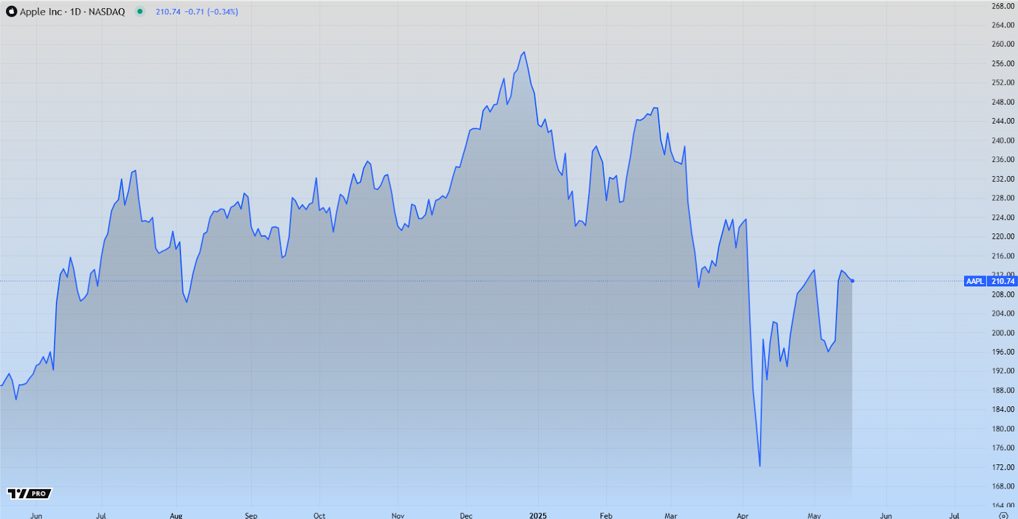The e-commerce industry is undergoing a rapid change and is witnessing an enormous growth in India endorsed by the rapid penetration of smartphones and the internet. While internet services are making forays into the rural market and service providers are pitting against each other to provide 3G and 4G services at affordable prices, the e-commerce and m-commerce industries are all gearing up to record even higher growth.

This is perhaps the best time to start an e-commerce business in India. There is an increasing demand for online purchasing, as more and more businesses are moving to the online store from brick and mortar stores – you might have done it too while visiting sites like Flipkart, Snapdeal, Amazon, Bigbasket, etc.
A large number of people in India are purchasing their goods online from the comfort of their home, and this number is increasing every day. Today, e-commerce has transformed the way companies are doing business. You can now purchase almost everything 24/7 and get the ultimate shopping experience and enjoy the sweeping benefits that the companies provide.
Before we move further, let us look at the rationale behind the shift towards online stores.
Convenience & Easiness
Let us start with an illustration to explain this. Suppose you visit a departmental store a few blocks from your house to purchase your household items every week, it takes a lot of your time and energy to visit the store and then stand in the cue to pay for the goods that you have purchased.
One day you observe that your friends are purchasing the same goods from the comfort of their home, what would you do? It is sans doubt that you would try the same thing also, because of its easiness and convenience. Consumers are also turning to online stores for this reason. Because of its convenience, consumers feel that they can save lots of time and money by searching for their products easily and making purchasing online.

Access Product
While visiting an e-commerce store you might have noticed the description and the details that you can get by clicking on the online catalog. Customers also find it very important to get information about the product no matter what the time it is. Easy access to product information is also another reason why people prefer e-commerce stores over the typical brick and mortar store.
24/7 Visibility
Brick and mortar stores are not open until the wee hours of the night. Many customers find time while returning home after office, but that is not the time when they are keen to go for shopping. This is where an online store comes in, they are open 24/7 and you can order products any time during the day. This is another reason that is luring customers to choose online stores over the brick and mortar store.
Now that you have understood why people are turning their attention to e-commerce stores let us understand how you can set up an e-commerce business in India. India is one of the fastest growing e-commerce markets in the world and there has been a tremendous craze among people to buy products using online shopping. These reasons are enough for you to think about starting your own e-commerce business in India.

Before you take a plunge into this business you should think about a few questions:
- Do you have a checklist of the products you want to list on your online store?
- What is the total budget that you want to start with?
- How much are you willing to invest in the platform?
- What market segment are you looking for, to start with?
- Do you need a custom platform based on your requirements, or do you need a pre-built platform to satisfy your requirements?
- How many funds can you allocate to maintain a dedicated resource to handle the e-commerce store?
Answers to these questions will give you an overview of what you might require to start your e-commerce business.
Guide to Start E-commerce Store in India
Here is a quick guide on how to start an E-commerce business in India. This guide will give you step by step information as to how easily you can set up the business:
INDEX –
- Business Plan and model
- Establishing your brand and business
- Registering your E-commerce Business
- Bank Account
- Designing and developing the E-commerce website
- The payment gateway for your E-commerce store
- E-commerce shipping solutions
- Attract clients to your online store
- Marketing strategies to market your products online
1. Business plan and model
You might have noticed that while starting your manufacturing business or your brick and mortar store, you required a business plan. Just like any traditional business you also need a business plan to set up an e-commerce store. If you do not have the game plan regarding your e-commerce business, chances are that your online store may struggle due to immense competition from other E-commerce platforms. Choice of products will play a crucial role to determine the structure, benefits and long-term success of your online store. You can trade with any products across different categories.

Typically there are two types of business models that you can choose from, a single vendor store or a multi-vendor store. You can either choose the single vendor model or the multi-vendor model depending upon your budget and resources.
Model 1- Single Vendor E-commerce Model
Single vendor e-commerce store refers to a site where the seller or the owner of the online store sells products to multiple customers. Your relationship with your customers will be like a one-to-many relationship. Single vendor model offers a lot of advantages, here are some of the benefits that you can consider:
- It involves only two entities – seller and the customers. Apart from these two entities, there will be no other body that you need to keep a track of.
- It is comparatively easier to create and monitor a relationship with a single supplier than 2 or more.
- Administrative and other supplementary costs are lower when you have just one supplier.
- You can increase the volume of attractive pricing.
- You will have better control over your inventories.
- It is easier to streamline and incorporate systems with a single vendor.
Model 2- Multi-vendor E-commerce Store
A multi-vendor marketplace refers to a site where there are multiple vendors and sellers, interacting with each other from the same platform. It is many to many relationships between the sellers and the customers. The sellers are required to register with the admin in order to sell their products through the e-commerce store. Now, let us find out the key advantages of a multi-vendor market place:
- It involves 3 entities namely admin, seller, and the customer.
- In case, one of your suppliers is unable to supply the goods due to any reason, you still will have at least another supplier to bank upon.
- You can manage the demand fluctuations easily when you have multiple suppliers, with whom you can adjust the order volumes as well as the price.
- Having multiple vendors allows you to overcome the supply disruptions.

2. Establishing your brand and business
Once you zero in on the products that you will be offering and decide the target audience and the model of the business you wish to pursue, your next step will be to establish a brand that will connect with your personality. As you identify the kind of products and target audience, it will become easier to create the brand. For example, if you want your target audience are moms and kids then you can use attractive colors that will create an impact on the mothers and their kids. You might have noticed sites using colors like orange, pink and yellow to make their pages look more attractive. You can consider these factors while creating your brand image:
- Brand name
- Colors of your brand
- your company logo
- the types & fonts you want to use
- tag line
- your total budget for branding.
You will require a budget to promote your brand, this will require you to spend money on optimization of your website along with promotions on social media. Along with online promotions, you also might have to do offline promotions to increase your brand value.
3. Registering your e-commerce business in India.
Registration of e-commerce business in India depends on the type of business model. We have listed the essential procedures that you will need to register the e-commerce business in India.
Essential Documents: You or the promoters who intend to be the directors of the company will have to apply for the Director’s Identification number or DIN in short. To apply for a DIN you should have your PAN and Digital Signature Certificate. You can download the DIN application form from the website of the Ministry of Corporate Affairs. You can apply for the DIN online by submitting the essential documents.
After having the DIN, you can apply for the availability of the proposed name of your company to the Registrar Of Companies or ROC. You may also visit the Ministry Of Corporate Affair’s website to check the availability of your proposed name. The shareholders will be required to fill in the MCA-21 forms available on the mca.gov.in.portal, for the same purpose. If your proposed name gets a confirmation from the ROC, you can then incorporate the proposed company within 6 months from the date of confirmation. Otherwise, you have to renew the name by paying a fee.

Here is the procedure to register your e-commerce business :
- Obtain Directors Identification Number (DIN), from the Government Authority or by applying online on the Ministry Of Corporate Affairs official website.
- Apply for a Digital Signature Of Directors for the proposed company.
- File application for Company Name to Registrar of Companies (ROC)
- Fill an application for the company’s registration to the same ROC of the state where the company has its headquarters.
List of documents that you will require to furnish at the time of your company registration:
- 2 passport size photos
- Identity and Address Proof such as Aadhar Card, PAN Card, Driving License or Passport, of all the persons on whose name the company is to be registered.
- Rent agreement, electricity bill or NOC (No Objection Certificate) from the landlord of the property where the business is intended to be conducted.
- Security in the form of a fixed deposit or a guarantor for GST registration
- Memorandum of Association
- Articles of Association
Application for GST, Shops & Establishment License and Professional Tax (PT).
In order to start an e-commerce business, it is mandatory to register your company with GST and other Taxes under the Government of India. This is important for all business owners. Since July 1, 2017, GST has replaced VAT, excise duty and service tax. If your seller and consumers belong to the same state then both CGST (Central Goods & Services Tax) and SGST (State Goods & Services Tax) is applicable, however, if your sellers and consumers are from different states then IGST (Integrated Goods & Services Tax) will be applicable. The following documents are required for GST registration:
- Photo of the applicant/s
- Proof of Professional Address.
- Any other certificate or documents issued by the Government.
- Consent letter
- Electricity bill
- Legal ownership document.
- Municipal Khata Copy
- Property Tax receipt
- Rent/lease agreement
- Rent receipt with NOC
- SEZ approval
- Proof of qualifying degree
- In case the applicant is a retired government employee then proof of designation of the post held at the time of retirement.
Apply for Professional Tax
Professional Tax has to be paid by every business owners. Professional tax enrollment and registration is applicable regardless of the entity type. Professional tax may vary from state to state. Documents that are necessary for Professional Tax registration are:
- Trade License
- Accounting records
- Details of employees
- Address Proof.
- Details of paid salaries.
Apply for the Certification Of Company’s Incorporation
Once you have all the approvals you need to incorporate your business as a Private Limited Company or a Partnership Firm or as a Limited Liability Partnership. You can download the respective forms from the Ministry of Corporate Affairs portal.
4. Bank Account
Once your company is incorporated, you have to open a current account with any of the banks in India. In case of a proprietary business, you need to furnish the details of the GST to open the account. It is crucial to open a Current Bank Account, in order to obtain a payment gateway for a proprietary e-commerce website.
5. Designing and developing the e-commerce website
The next step is to move on the designing and development of your e-commerce website. You can either choose a custom built website to suit your specific requirements or opt for pre-built platforms that are available in the market. There are a lot of pre-built platforms that are available in the market like Woocommerce, Shopify, Magento, Joomla, etc.
Pre-built platforms offer a lot of themes or templates to choose from and are created to meet the requirements of a specific market. Your developer can easily develop your e-commerce website using such tools. However, it is always better to use a custom build platform for your business because it allows you to customize the entire design of your e-commerce store as per your business requirements.

6. Payment gateway for your E-commerce store
A payment gateway is an integral part of the e-commerce business. Payment gateways allow you to accept credit cards, debit cards, net banking, and internet banking payments from multiple banks and credit card companies. Here are some of the most popular payment gateways in India – InstaMojo, CCAvenue, PayU payment gateway from PayU Money, PayUBiz payment gateway, PayPal, EBS, and PayTM. You will be required the following documents to get a payment gateway for your e-commerce site :
- Bank account in the name of the business
- PAN card of the business
- Certificate of Incorporation
- Memorandum of Association
- Identity Proof
- Address Proof
- Website terms of use
- Website privacy policy

7. E-commerce shipping solutions
Logistics plays a crucial role in the e-commerce business. Your online store is incomplete without a shipping solution. Once you receive the order you need to dispatch the goods to your customers. Since many sites offer free shipping, you also might find it necessary to offer free shipping options to your customer. Here are some of the popular options that you can choose from.
- Shiprocket
- Zepo
- DTDC
- First Flight
- iThink Logistics
8. Attract Clients To Your Online Store
Once you have your website up and running, you need to market your online store to attract customers, because it is your customers who will give you the moolah. Search engine optimization is a must. You need to spend a major chunk of your budget for digital marketing. Stay updated with digital marketing trends. You need to weigh all the options available after all it is a very competitive market. Luckily there are many tools like pay per click ads, sponsored contents, Google PPC ads are available to attract your target audience.
9. Marketing strategies to market your product online
Just attracting traffic to your e-commerce site is not enough, you also need to market your products to your audience. Your main intention is to sell your products and not just drive traffic, so you have to figure out ways to think beyond your website and expand it. You may stat email campaigns to market your products, you can provide the customers redeemable coupons, promote your product by providing offers and use tactics to market the goods that your selling. You may also check affiliate marketing to increase your brand awareness. You can also employ professional bloggers to provide customer reviews. Customer reviews and ratings are important when it comes to online shopping.

Bottom Line
Starting an e-commerce business is a great idea. There can be no better time like the present as the industry is experiencing tremendous growth and it is better to strike while the iron is hot. Starting an e-commerce business is not difficult, although you are sure to face tough completion, it is the same for all the business, isn’t it? If you have a proper strategy to market your e-commerce store then you will surely reap gold in the long run. The tips mentioned above will be helpful for you to start your venture with the e-commerce industry.




